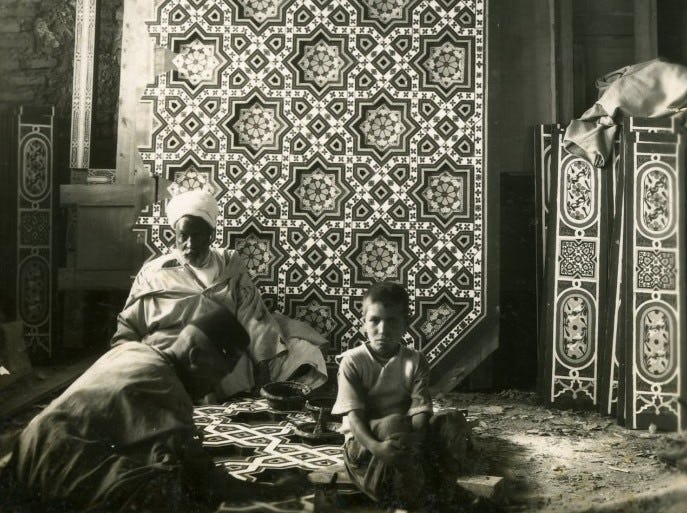Polychrome Tile Panel with Double-Vase Motif
Date17th - 18th century
PeriodSafavid
MediumCeramic, polychrome pigments
DimensionsOverall: 99 x 45 in. (251.5 x 114.3cm)
ClassificationsCeramics
Credit LineCourtesy of the Doris Duke Foundation for Islamic Art
Object number48.92.2
DescriptionEagles soar among swirling clouds and diving ducks, blue and turquoise songbirds perch among flowering branches, and a tiger pounces from within leafy foliage toward a pair of unfortunate ibex. This imagery captures a continuous theme in Iranian art: the hunt. Scenes of humans and animals hunting have been depicted in the arts of Iran since pre-Islamic times, appearing in stone carving and metal vessels of the Achaemenids and Sasanians. The motif of the hunt is called Gereft-o Gir (“catching and hunting”) in Persian. During the Safavid period (1501–1722 CE), artists of the court-sponsored workshops depicted hunting scenes that were shared across multiple forms of media. Gereft-o Gir was especially prominent in Safavid carpet design.On View
On viewCollections
17th century
17th century
19th - 20th century
17th century
17th century
Dated AH 1031 (1622 CE)
12th - 13th century
12th - 13th century














